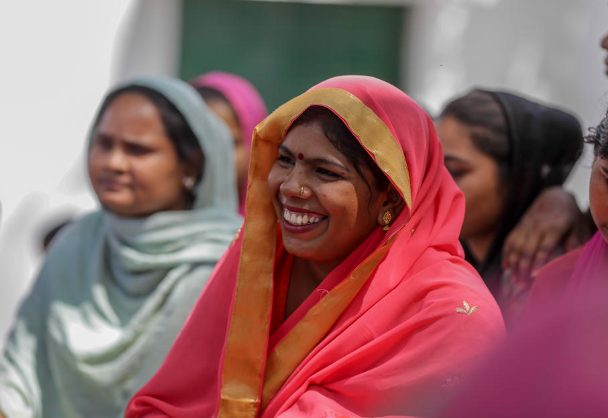In the tapestry of public health concerns, menstrual hygiene management emerges as a vital yet often overlooked issue, especially in the context of India. Amidst cultural taboos and socio-economic disparities, ensuring access to adequate menstrual health and hygiene resources remains a challenge for many women and girls across the country. Menstrual hygiene in India is not just a matter of personal well-being but a critical determinant of health, dignity, and empowerment.
In this blog series, we delve into the multifaceted landscape of menstrual hygiene management in India, shining a light on the importance of menstrual health and hygiene awareness. From rural villages to urban centers, the journey towards promoting menstrual hygiene in India involves navigating complex cultural norms, addressing stigmas, and advocating for policy changes to ensure equitable access to menstrual hygiene products and facilities.
We explore the various dimensions of menstrual health and hygiene, from the physical and emotional well-being of individuals to the broader societal implications of menstrual hygiene management. Through education, advocacy, and community engagement, we aim
to foster a culture of openness and empowerment surrounding menstruation, where every woman and girl in India can manage their menstrual health with dignity and confidence.
Join us on this journey as we unravel the challenges, celebrate the progress, and champion the cause of promoting menstrual hygiene awareness in India. Together, let us strive towards a future where menstrual health and hygiene are recognized as fundamental human rights upheld with compassion and respect.
Cultural Perspectives:
Cultural Perspectives: Understanding the nuances of menstrual hygiene management in India unveils a tapestry woven with cultural intricacies. Here, discussions around menstrual hygiene intersect with deeply ingrained societal norms and taboos. Menstrual hygiene in India is not merely a matter of health but a reflection of cultural beliefs and practices. The journey towards promoting menstrual health and hygiene involves navigating traditions that often perpetuate stigma and shame. By embracing cultural perspectives and engaging communities in open dialogue, we can dismantle barriers and foster acceptance, ensuring every individual’s right to dignified menstrual hygiene management.
Access to Menstrual Hygiene Products:
Access to menstrual hygiene products is a critical aspect of menstrual hygiene management, particularly in India, where cultural taboos and economic constraints often hinder women’s ability to manage their menstrual health effectively. Addressing the gap in access to menstrual hygiene products is essential to promoting menstrual hygiene in India and ensuring the well-being and dignity of women and girls. By improving availability, affordability, and awareness surrounding these products, we can empower individuals to prioritize their menstrual health and hygiene, thereby breaking down barriers and fostering a more inclusive and equitable society.
Education and Empowerment:
Education and empowerment are key pillars in the promotion of menstrual hygiene management, particularly in the context of India. By imparting knowledge about menstrual hygiene and health, we empower women and girls to make informed decisions regarding their well-being. Through targeted educational initiatives, we can break the silence surrounding menstrual hygiene in India, dispelling myths and taboos that hinder open discourse. By fostering a culture of understanding and acceptance, we pave the way for improved menstrual health and hygiene practices, ultimately leading to better overall health outcomes and empowering women to lead healthier, more dignified lives.
Community Engagement:
Community engagement plays a pivotal role in promoting menstrual hygiene management and fostering acceptance of menstrual hygiene in India. By involving local communities, we can break cultural taboos and challenge stigmas surrounding menstruation. Through education initiatives and open dialogue, community members can learn about the importance of menstrual health and hygiene, empowering women and girls to manage their periods with dignity and confidence. Additionally, community-led efforts can address issues such as access to menstrual hygiene products and facilities, ensuring that all individuals have the resources they need to maintain proper menstrual hygiene and safeguard their health and well-being.
Role of Men and Boys:
In addressing menstrual hygiene management, the role of men and boys in India is crucial. Breaking cultural barriers and dispelling myths surrounding menstruation requires inclusive conversations and support from all genders. By actively engaging men and boys in discussions about menstrual hygiene in India, we can foster empathy, understanding, and allyship. Through education and awareness initiatives, we can empower them to become advocates for menstrual health and hygiene, contributing to a more supportive environment where women and girls feel comfortable managing their menstrual health. Together, we can challenge societal norms and promote a culture of acceptance and respect for menstrual hygiene.
Impact on Health and Well-being:
Proper menstrual hygiene management has a profound impact on the health and well-being of women and girls, particularly in the context of India. Inadequate access to menstrual hygiene resources and practices can lead to a range of health issues, including infections, reproductive complications, and psychological distress. By prioritizing menstrual hygiene in India, we can mitigate these risks and promote overall well-being. Through education, access to hygienic products, and supportive environments, we empower individuals to manage their menstrual health with dignity and confidence, ensuring that menstruation becomes a natural and positive aspect of women’s lives, free from unnecessary health burdens.
Conclusion
In conclusion, the journey towards improved menstrual hygiene management in India is one of paramount importance, touching upon not just individual well-being but societal progress
as well. By addressing the multifaceted challenges surrounding menstrual hygiene in India, from cultural taboos to access barriers, we pave the way for a healthier, more equitable future. Promoting menstrual hygiene awareness is not merely a matter of education; it’s an act of empowerment, dignity, and respect for every woman and girl. As we continue to advocate for menstrual health and hygiene, let us uphold the fundamental rights and dignity of individuals, fostering a culture of openness and inclusivity for generations to come.
Read More: India Feminine Hygienic Product Market

